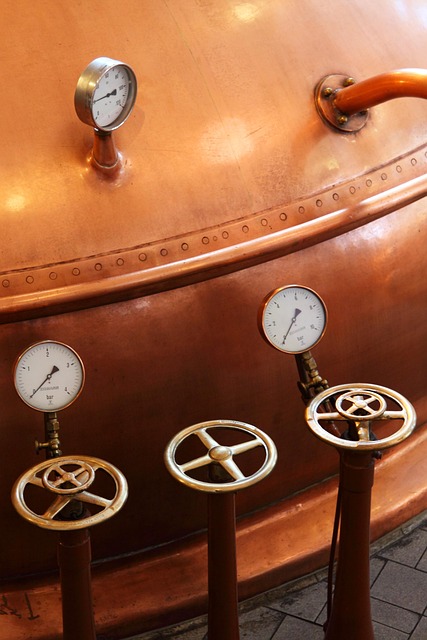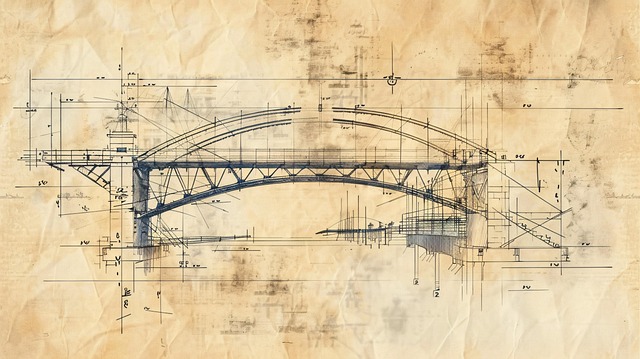Preparing UK Technical Standards for Regulatory Compliance via Translation
Translation services for UK Technical Guidelines and Standards are essential for international businesses aiming to operate within or access the UK market. These services navigate complex regulatory landscapes, facilitate communication across industr…….

Translation services for UK Technical Guidelines and Standards are essential for international businesses aiming to operate within or access the UK market. These services navigate complex regulatory landscapes, facilitate communication across industries, and ensure compliance with stringent safety and quality benchmarks. By leveraging qualified translators with specialized knowledge and implementing robust quality assurance measures, organizations can stay ahead of evolving regulations, mitigate legal risks, and foster international collaboration. Case studies from diverse sectors highlight the vital role of these translation services in enabling successful regulatory compliance for UK businesses.
Are your UK technical standards prepared for an upcoming regulatory review? In today’s global market, understanding the intricate UK regulatory landscape is crucial. This comprehensive guide explores the vital role of translation services in ensuring compliance with UK technical guidelines and standards. We examine key considerations, challenges, best practices, and real-world case studies to help organizations future-proof their operations. By delving into these aspects, businesses can effectively navigate the complexities of translating specialized terminology and maintain regulatory adherence.
- Understanding UK Regulatory Landscape for Technical Standards
- The Role of Translation in Ensuring Compliance
- Identifying Key Technical Guidelines for Review
- Challenges in Translating Specialized Terminology
- Best Practices for Accurate Technical Document Translation
- Case Studies: Successful Regulatory Compliance Through Translation
- Future-Proofing: Adapting to Evolving UK Technical Standards
Understanding UK Regulatory Landscape for Technical Standards

The UK’s regulatory landscape for technical standards is complex, with multiple bodies playing pivotal roles in their development and enforcement. This intricate web includes agencies like the British Standards Institution (BSI), which is responsible for creating and updating industry standards, and government departments such as the Department for Business, Energy & Industrial Strategy (BEIS) that oversee these processes. Understanding this regulatory environment is crucial for businesses looking to ensure compliance with UK technical guidelines and standards.
Translation services for UK Technical Guidelines and Standards are an integral part of navigating this landscape, especially for international companies operating within the UK or aiming to access its market. Accurate and reliable translation ensures that all stakeholders can comprehend and adhere to these standards, fostering a level playing field for businesses while maintaining high safety and quality benchmarks.
The Role of Translation in Ensuring Compliance

Identifying Key Technical Guidelines for Review

In the ever-evolving landscape of UK technical standards, staying aligned with regulatory requirements is paramount. When preparing for a regulatory review, identifying key technical guidelines becomes crucial. This involves meticulously scrutinizing existing documents and practices to ensure they meet current regulations and industry best practices. Businesses often rely on translation services for UK Technical Guidelines and Standards to facilitate this process, ensuring that all documentation is accurately translated and interpreted, especially as many standards are available in multiple languages.
A comprehensive review should encompass a wide range of technical aspects, from safety protocols and quality assurance measures to environmental impact considerations. By focusing on these key guidelines, organizations can proactively address any gaps or inconsistencies, thereby enhancing their compliance posture and demonstrating a commitment to maintaining the highest standards.
Challenges in Translating Specialized Terminology

Translating specialized terminology is a significant challenge when it comes to ensuring UK technical standards are ready for regulatory review. Many technical documents contain unique, industry-specific terms that require precise and accurate translations. Without access to reliable translation services for UK Technical Guidelines and Standards, there’s a risk of misinterpretation or mistranslation, which can lead to compliance issues.
This complexity is further compounded by the fact that technical standards often evolve rapidly with new advancements in technology. Maintaining consistency and accuracy across multiple languages requires constant updates and specialized knowledge. Therefore, engaging professional translation services that specialize in technical documentation becomes essential to guarantee that translated standards align perfectly with their original UK counterparts.
Best Practices for Accurate Technical Document Translation

When it comes to ensuring compliance with UK technical standards, accurate translation of documentation is paramount. Best practices for technical document translation involve a meticulous process that goes beyond simple word-for-word substitution. Qualified translators with specialized knowledge in both the source and target languages are essential. They not only grasp complex technical jargon but also understand the nuances of regulatory requirements specific to the UK market.
Translation services for UK Technical Guidelines and Standards should incorporate quality assurance measures, such as peer review and proofreading, to maintain precision and consistency throughout the document. Using industry-specific terminology databases and keeping up with updates in both languages ensures that technical accuracy is preserved. This meticulous approach safeguards against misinterpretations that could lead to non-compliance, fines, or reputational damage.
Case Studies: Successful Regulatory Compliance Through Translation

Successful regulatory compliance often hinges on precise and accurate translation of UK technical guidelines and standards. Case studies from various industries reveal that effective translation services play a pivotal role in navigating complex regulatory landscapes. For instance, a leading automotive manufacturer encountered challenges when expanding its operations to Europe. Their solution? Engaging specialist translation services to localisation their technical documentation, ensuring compliance with EU standards. This strategic move streamlined the approval process and facilitated market access, demonstrating the tangible benefits of professional translation support.
Similarly, a pharmaceutical company faced stringent regulatory requirements for entering the UK market. By leveraging high-quality translation services for their product information and clinical trial data, they successfully met all criteria. This demonstrated that investing in expert translation not only guarantees compliance but also enhances the overall quality and integrity of technical documentation. These examples underscore the significance of translation services as a vital enabler for UK businesses aiming to achieve regulatory compliance in their respective sectors.
Future-Proofing: Adapting to Evolving UK Technical Standards

Staying ahead of the curve is crucial in the ever-evolving landscape of UK technical standards. As regulations update and new technologies emerge, organisations must adapt to maintain compliance. This is where translation services for UK technical guidelines and standards play a vital role. They ensure that businesses can future-proof their operations by keeping up with the latest standards across various sectors.
By leveraging professional translation services, companies can access the most recent updates and revisions in key industry guidelines. This proactive approach enables them to implement best practices promptly, preventing potential legal issues down the line. It’s essential to remember that regulatory compliance is not a one-time task but an ongoing process, especially with the rapid pace of technological advancements.
As we’ve explored, ensuring your UK technical standards are ready for regulatory review involves a multifaceted approach. From understanding the local landscape to leveraging translation services for UK technical guidelines and standards, each step is crucial in maintaining compliance. By identifying key areas, addressing specialized terminology challenges, and adopting best practices, organizations can effectively navigate these processes. Looking ahead, future-proofing through constant adaptation ensures that your standards remain relevant and compliant in a dynamic regulatory environment. Remember, professional translation services play a vital role in this journey, providing accurate interpretations that support smooth regulatory transitions.





